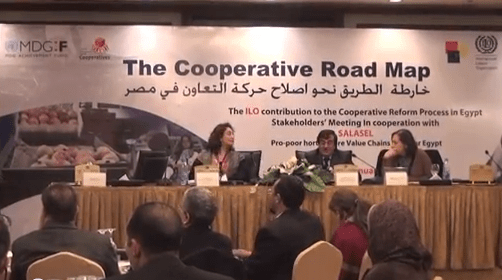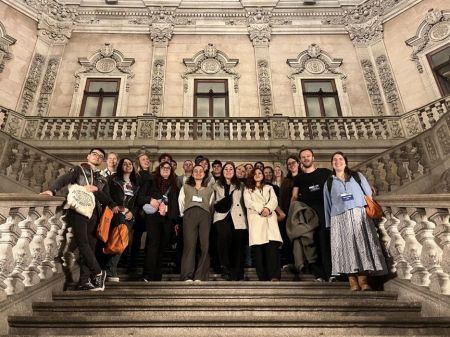We are pleased to share news of a new book relevant to…
ILO proposes a co-operative roadmap for Egypt

The workshop, which took place in Cairo on 17 January, was designed to enable a discussion on co-operative law among stakeholders and alert them of the importance of co-operatives in the current economic context.
Keynote speakers included Dr Youssef Qaryouti, Head of the ILO’s office in Egypt; Simel Esim, Chief of the ILO’s co-operative branch; and Huseyin Polat, ILO consultant for Co-operative Management and Training. Representatives from two ministries, the Ministry of Agriculture and Land Reclamation and Ministry of Industry and Trade, and an adviser to President Morsi also participated in the meeting.
The event was split in two main sessions and consisted of dialogue between farmers, trade unions, co-operative leaders and policy makers. The first session started with the presentation of an unpublished report prepared by ILO Consultant Huseyin Polat entitled “The Cooperative Roadmap: The ILO contribution to the cooperative reform process in Egypt”.
Following the first session, participants were divided into two groups to discuss on a new co-operative policy and law and the future of the co-operative movement, assessiong what needs to be done to re-invigorate the existing structures and mechanisms.
The discussions revealed that there are various points of strength to build on, such as co-operative funds that are already active in some local governorates across Egypt. Co-operators also gave examples of co-operatives that have been able to achieve progress in spite of the existing laws and bureaucratic processes. Participants agreed that there is a need to increase awareness of the importance of co-operatives at grass root level.
Another aspect they agreed upon was the need to introduce amendments to the current co-operative law and help co-operatives gain independence from the government. Speaking of ILO's proposals aimed at reforming the co-operative sector, Huseyin Polat said: “The real owners of the process will be the Egyptians themselves”.
However, there were differences of opinions concerning the consolidation of all co-operative activities, from agriculture to housing, under a single co-operative law. In Egypt each co-operative sector currently has its own law. If stakeholders reach a consensus in terms of co-operative law reform, once a new parliament is elected the new law could get full support to be amended.




